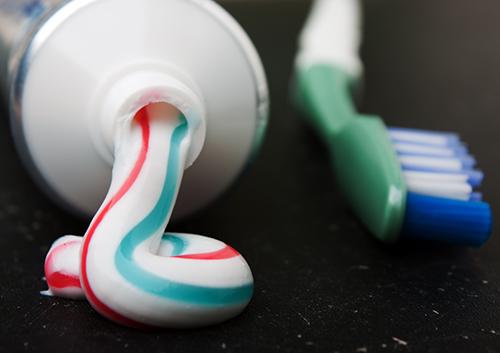
Dentist - Battle Creek
3 John R St.
Battle Creek, MI 49015
269-968-2880
REQUEST AN APPOINTMENT
PATIENT FORMS
Good Teeth Lead to Sporting Success
- posted: Apr. 09, 2024
You already know that taking care of your teeth can help prevent tooth decay and the need for extensive work such as root canals or implants, which can be inconvenient Read More
Snowball Effect
- posted: Apr. 02, 2024
Winter and its snowball fights are behind us, true, but there might be another kind of snowball heading your way—the snowball effect you risk when small dental concerns are ignored Read More
Sealants: What are they and how do they help?
- posted: Mar. 26, 2024
Molars are made up of canyons, caves, pits, and seemingly endless caverns that are a breeding ground for decay. The protective solution is a sealant. When done correctly, a sealant Read More
Adult Mouthguards
- posted: Mar. 19, 2024
You make sure your daughter wears her mouthguard to every soccer practice. Your son doesn’t step on the basketball court without his. Why not protect your smile as well? Athletes of Read More
St. Patrick's Day
- posted: Mar. 12, 2024
On March 17, everyone has a little Irish in them. St. Patrick’s Day is a joyous celebration of Irish heritage. The holiday originated as a commemoration of Saint Patrick, who Read More
Good Nutrition Leads to Healthy Mouths
- posted: Mar. 05, 2024
At Bruce A. Leonard, DDS, we know the most common oral health diseases are tooth decay and periodontal disease (or gum disease), and both are among the easiest to prevent. Read More
How do I handle my child’s dental emergency?
- posted: Feb. 27, 2024
With children undergoing developmental dental changes and engaging in rough-and-tumble activities, dental emergencies can sometimes arise. If your child knocks out a tooth or experiences any type of oral discomfort, Read More
Top Five Best Foods for Oral Health
- posted: Feb. 20, 2024
Some foods are just terrible for your teeth — think cookies and candy bars — but there are certain foods that are beneficial to your oral health. Below, the doctor Read More
Team Dark Chocolate
- posted: Feb. 13, 2024
Valentine’s Day is the holiday to celebrate all the treasured relationships in your life. It’s a time to honor love in all shapes and forms with cards, social gatherings, and Read More
Suffer from tooth discoloration? Don’t panic!
- posted: Feb. 06, 2024
Like many other parts of the human body, teeth age. You may look at old photos and realize your smile was significantly brighter in the past than it is now. Read More
What is a root canal?
- posted: Jan. 30, 2024
A root canal entails the removal of the nerve supply from a tooth. If you know the purpose of a root canal, the process may seem a little less intimidating. the Read More
What's in toothpaste and how does it work?
- posted: Jan. 23, 2024
the doctor and our team recommend that you brush your teeth two to three times a day, for at least two minutes each time. But have you ever wondered what’s Read More
Why Is My Child Getting Cavities?
- posted: Jan. 16, 2024
We want our children to have every advantage, including oral health. That’s why you encourage your child to brush twice a day. You keep the sugary treats to a minimum. Read More
Three Must-Have Dental Treatments
- posted: Jan. 09, 2024
In dentistry, there are a wide variety of treatments, everything from elective procedures to those that are necessary and potentially lifesaving. So given the slew of treatment options, how do Read More
Make this the Year You Stop Smoking
- posted: Jan. 02, 2024
It’s a new year, and it couldn’t come fast enough for many of us! Let’s do our part to make this a better year in every way—and you can start Read More
This website includes materials that are protected by copyright, or other proprietary rights. Transmission or reproduction of protected items beyond that allowed by fair use, as defined in the copyright laws, requires the written permission of the copyright owners.















